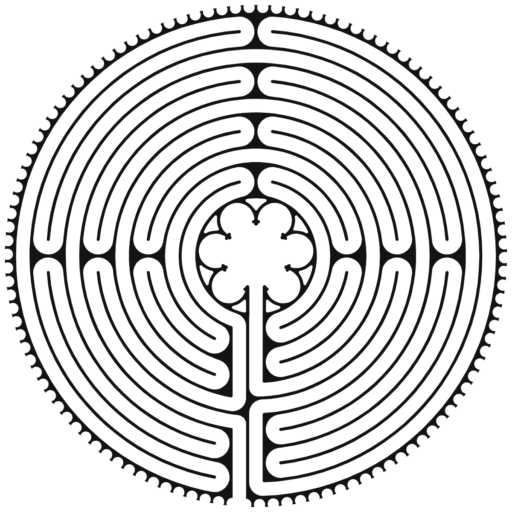Below is a list of readings that will serve as a resource in your current and future studies of STS. You do not have to read each and every article to participate productively in the Summer School, but a set of required readings, marked with a *, will provide a common base for our discussions. Additional related readings are marked with a +, though these are not necessary to read in preparation for each class.
In Part I you will find a list of general readings (A.) and daily readings (B.) to guide the discussions. In Part II you will find selected writings by the instructors that are entirely optional, though germane to getting to know your instructors and the sessions they will be teaching.
Participants of the 2023 Summer School can access readings here by entering the password.
I Required (*) & Related (+) Readings
A. General Readings
*(Review) S. Hilgartner, S. Jasanoff and H. Simmet. Core STS Concepts Crib Sheet.
*S. Jasanoff. The Discontents of Truth and Trust in 21st Century America. Daedalus 151, 4 (2022): 25–42.
*S. Hilgartner, J. B. Hurlbut and S. Jasanoff. Was ‘science’ on the ballot? Science 371, 6532 (2021): 893-894.
*L. Winner. Do Artifacts Have Politics? In The Whale and the Reactor, pp. 19-39. Chicago: University of Chicago Press, 1986.
B. Daily Readings
Monday, August 21
STS in the World I: Editing Genomes
*S. Jasanoff and J. B. Hurlbut. A global observatory for gene editing. Nature 555, 7697 (2018): 435-437.
*Megan Molteni. Setting aside the thorniest issues around CRISPR babies, scientists say embryo-editing research should proceed. Stat +, March 14, 2023.
+(Browse) Global Observatory webpage.
STS in the World II: Expertise and Knowledge in the Pandemic
*S. Jasanoff and S. Hilgartner. A Stress Test for Politics: Insights from the Comparative Covid Response Project (CompCoRe) 2020. Verfblog, 11 May 2021.
*(Skim) S. Jasanoff, S. Hilgartner, J. B. Hurlbut, O. Özgöde, and M. Rayzberg. Comparative Covid Response: Crisis, Knowledge, Politics. Interim Report.
*A. R. Migone. Trust, but customize: federalism’s impact on the Canadian COVID-19 response. Policy and Society 39, 3 (2020): 382-402.
+J. Cohen. Obtain, but verify. Joncohen.org, 22 October 2022.
+K. Stewart. How federalism failed Canadian cities during COVID-19. Policy Options, 6 June 2023.
Tuesday, August 22
Learning Session: STS Methods
*W. Cronon. A Place for Stories: Nature, History, and Narrative. The Journal of American History 78, 4 (1992): 1347-1376.
*T. Pinch. Foreword. In H.S. Rogers et al. (eds.) The Routledge handbook of art, science, and technology, studies, pp. xxi-xxv. London and New York, NY: Routledge, 2021.
*J. Favret-Saada. Part I: There must be a subject. In C. Cullen (trans.) Deadly Words: Witchcraft in the Bocage, pp. 3-28. Cambridge, UK: Cambridge University Press.
+B. Braun. From critique to experiment? Rethinking political ecology for the anthropocene. In T. Perreault, G. Bridge and J. McCarthy (eds.) The Routledge handbook of political ecology, pp. 102-114. London and New York, NY: Routledge, 2012.
Learning Session: Expert Advice and Credibility
*B. El-Chichakli, J. v. Braun, C. Lang, D. Barben and J. Philp. Policy: Five cornerstones of a global bioeconomy. Nature 535, 7611 (2016): 221–223.
*S. Jasanoff, Judgment under Siege: The Three-Body Problem of Expert Legitimacy. In P. Weingart and S. Maasen (eds.) Democratization of Expertise? Exploring Novel Forms of Scientific Advice in Political Decision-Making, Sociology of the Sciences Yearbook, pp. 209-224. Dordrecht: Kluwer, 2005.
*P.-B. Joly and A. Kaufmann. Lost in translation? The need for ‘upstream engagement’ with nanotechnology on trial. Science as Culture 17, 3 (2008): 225-247.
*J. Moch. COP27: Reflections from a AAAS Science & Technology Policy Fellow. AAAS Science and Technology Policy Fellowships Blog, 6 February 2023.
+IISD. Summary of the 58th Session of the Intergovernmental Panel on Climate Change: 13-19 March 2023. Earth Negotiations Bulletin 2, 819 (2023).
+SBSTA. Research and systematic observation – Draft conclusions proposed by the Chair. United Nations Framework Convention on Climate Change.
+National Research Council. Chapters 1 & 2. In Analysis of Global Change Assessments, pp. 12-37. Washington, D.C.: National Academies Press, 2007.
Learning Session: Evidence and Truth
*D. Quammen. The Ongoing Mystery of Covid’s Origin. New York Times Magazine, 25 July 2023.
*A. Agathangelou and K.D. Killian. Paved with good intentions: The road of the humanitarian project of DNA identification of the missing in post-conflict Cyprus. In L. Charles and G. Samarasinghe (eds.) Family systems and global humanitarian mental health: Approaches in the field, pp. 35-52. New York: Springer, 2018.
+C. Kormann. The Mysterious Case of the Covid-19 Lab-Leak Theory. The New Yorker, 12 October 2021.
+A. Agathangelou. Whither Anarchy? Harvesting the ‘Global’ Bio-tech Body, Indian Markets and Biomedical Technologies. In M. Mayer et al. (eds.), The Global Politics of Science and Technology – Vol. 2, Global Power Shift, pp. 179-204. Springer-Verlag: Berlin Heidelberg, 2014.
Learning Session: AI in Society
*M. Smallman. Policies designed for drugs won’t work for AI. Nature 567, 7746 (2019): 7–7.
*M. Smallman. Multi Scale Ethics—Why We Need to Consider the Ethics of AI in Healthcare at Different Scales. Science and Engineering Ethics 28, 6 (2022): 63.
*G. Paltieli. The political imaginary of National AI Strategies. AI & Society 37, (2022): 1613-1624.
+D. McGrath. Put ‘public good’ at heart of AI and new tech, Starmer to say. Evening Standard, 12 June 2023.
Group Exercise: Governance of AI and Platform Technologies
*AI Ethical Guidelines Readings Discussion (Groups A / B / C):
- Group A: OSTP, Blueprint for an AI Bill of Rights: Making Automated Systems Work for the American People
- Group B: EU, AI Act
- Group C: Open AI, Why responsible AI development needs cooperation on safety
+A. Jobin, M. Ienca and E. Vayena. The global landscape of AI ethics guidelines. Nature Machine Intelligence 1, 9 (2019): 389-399.
Wednesday, August 23
Roundtable: Trust in Science
*M. G. Lawrence and S. Schäfer. Promises and perils of the Paris Agreement. Science 364, 6443 (2019): 829-830.
*M. Smallman. Nothing to do with the science”: How an elite sociotechnical imaginary cements policy resistance to public perspectives on science and technology through the machinery of government. Social Studies of Science 50, 4 (2020): 589-608.
Roundtable: Economic Expertise and Prediction
*E. Popp Berman. Thinking like an Economist. In Thinking like an Economist: How Efficiency Replaced Equality in U.S. Public Policy, pp. 1-23. Princeton, NJ: Princeton University Press, 2022.
*M. Fourcade, E. Ollion and Y. Algan. The Superiority of Economists. Journal of Economic Perspectives 29, 1 (2016): 89-114. Read first 7 pages.
*M. Fairbrother. Economic Experts and Neoliberal Policy Changes: A Case Study of North American Free Trade. The Sociological Quarterly 54, 2 (2013): 198-219. Read first 9 pages.
II Get to Know Your Instructors
A. Agathangelou and K. D. Killian. About time: climate change and inventions of the decolonial, planetarity and radical existence. Globalizations 18, 6 (2021): 821-838.
A. Agathangelou. On the question of time, racial capitalism and the planetary. Globalizations 18, 6 (2021): 880-897.
A. Agathangelou. Humanitarian Innovations and Material Returns: Valuation, Bio-Financialization, and Radical Politics. Science, Technology and Society 22, 1 (2017): 78-101.
S. Bandopadhyay and J. R. Coene. Disaster Risk in the Carceral State. Stanford Environmental Law Journal 42, 2 (2023): 171-240.
S. Bandopadhyay. In the Shadow of Leviathans Seen and Unseen. In All is Well, pp. 1-19. Oxford: Oxford University Press, 2022.
D. Barben and N. Matzner. Anticipatory Governance of Climate Engineering. In H. v. Storch (ed.) Oxford research encyclopedia of climate science. New York, NY: Oxford University Press, 30 June 2020.
D. Barben. Analyzing acceptance politics: Towards an epistemological shift in the public understanding of science and technology. Public Understanding of Science 19, 3 (2010): 274–292.
M. Boenig-Liptsin. Public Trust in Computing: Analyzing Trust and Digital Technologies with the Constitutionalism Framework. Philosophy of Law and General Theory of Law (April 2023).
M. Boenig-Liptsin. Aiming at the Good Life in the Datafied World: A co-productionist framework of ethics. Big Data and Society (November 2022).
S. Hilgartner. Reordering Life: Knowledge and Control in the Genomics Revolution. Penguin Randomhouse, 2017.
S. Hilgartner, C. Miller and R. Hagendijk. Science and Democracy: Making Knowledge and Making Power in the Biosciences and Beyond. Routledge, 2015.
J. Benjamin Hurlbut. Imperatives of Governance: Human Genome Editing and the Problem of Progress. Perspectives in Biology and Medicine 63, 1 (2020): 177-194.
J. Benjamin Hurlbut. Laws of Containment: Control without Limits in the New Biology. In I. Braverman (ed.) Gene Editing, Law, and the Environment. London: Routledge, 2017.
S. Jasanoff. Toward Societal Self-Reflection. In Uncertainty: Boston Review (2022): 9-29.
S. Jasanoff. Humility in the Anthropocene. Globalizations 18, 6 (2021): 839-853.
S. Jasanoff. Future Imperfect: Science, Technology, and the Imaginations of Modernity. In S. Jasanoff and S-H. Kim (eds.) Dreamscapes of Modernity: Sociotechnical Imaginaries and the Fabrication of Power, pp. 1-33. Chicago: Chicago University Press, 2015.
S. Jasanoff. Civic epistemology. In Designs on nature: Science and democracy in Europe and the United States, pp. 247-271. Princeton, NJ: Princeton University Press, 2005.
S. Jasanoff. The idiom of co-production. In S. Jasanoff (ed.) States of Knowledge: The Co-production of Science and the Social Order, pp. 1-45. New York: Routledge, 2004.
P. B. Joly. Governing Emerging Technologies – The need to think outside the (black) box. In S. Hilgartner, C. Miller and R. Hagendijk (eds.) Science and Democracy: Knowledge as Wealth and Power in the Biosciences and Beyond. Routledge, 2015.
B. Kus. Disembedded Finance: State, Financialization, and Crisis in the US. Oxford: Oxford University Press, Forthcoming.
A. E. Leeds. Dreams in Cybernetic Fugue: Cold War Technoscience, the Intelligentsia, and the Birth of Soviet Mathematical Economics. Historical Studies in the Natural Sciences 46, 5 (2016): 633-668.
O. Özgöde. The emergence of systemic risk: The Federal Reserve, bailouts, and monetary government at the limits. Socio-Economic Review 20, 4 (2021): 2041-2071.
O. Özgöde. Institutionalism in Action: Balancing the Substantive Imbalances of ‘the Economy’ through the Veil of Money. History of Political Economy 52, 2 (2020): 307-339.
S. Schäfer. The intervention of climate science. In Baker, Z., T. Law, M. Vardy, and S. Zehr (eds.) Climate, Science, and Society: A Primer. London: Routledge, Forthcoming.
K. Schiølin. Revolutionary dreams: Future essentialism and the sociotechnical imaginary of the fourth industrial revolution in Denmark. Social Studies of Science 50, 4 (2020): 542-566.
M. Takahashi. The improvised expert: Staging authority at an OECD Nuclear Energy Agency workshop in Fukushima. Social Studies of Science, forthcoming.
M. Takahashi. ‘Studying up’ on Fukushima. EASST Review 40, 2 (2021).
The work that was done to compile the introductory resources (crib sheet + readings) was clearly nontrivial and very very helpful!
– 2022 Participant


